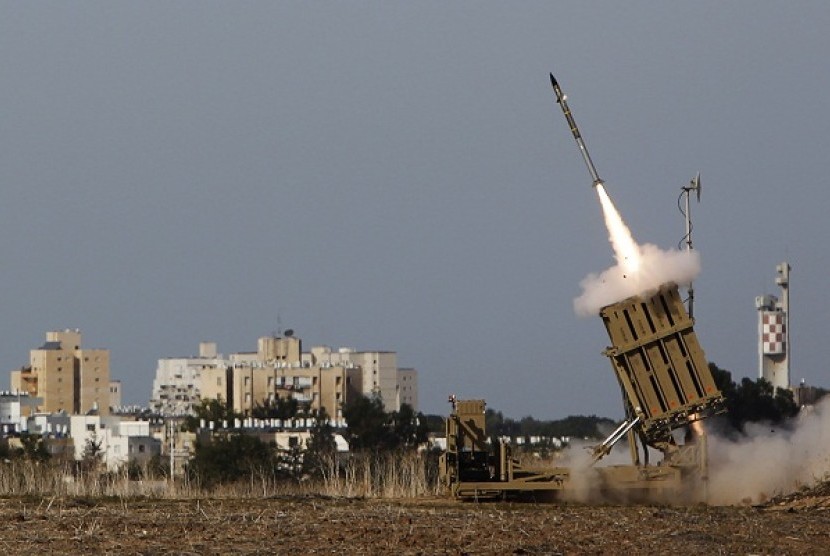REPUBLIKA.CO.ID, JERUSALEM - Israel's Iron Dome interceptions of Palestinian rockets during eight days of Gaza fighting cost 25 million USD to 30 million USD, the government said on Thursday, arguing the U.S.-backed system was well worth the money.
"Were Iron Dome traded on the (Tel Aviv) stock exchange or Nasdaq, it would have multiplied its share value several times over," Civil Defense Minister Avi Dichter told Israel Radio in an interview where he outlined the system's outlay.
Using radar-guided interceptor missiles, Israel's five truck-towed Iron Dome batteries shot down 421 of some 1,500 rockets launched from the Gaza Strip between November 14 and Wednesday's Egyptian-brokered truce, the military said.
It put Iron Dome's success rate at 90 percent. To lower costs, the system engages only rockets that threaten populated areas, though it often fires two interceptor missiles at once.
Rockets killed 5 people in Israel and wounded dozens during the conflict, police said. Three died in coastal Ashdod on a day when Rafael Advanced Defense Systems Ltd, Iron Dome's state-owned manufacturer, said the system had suffered a malfunction.
If more Hamas rockets had got through, especially the handful fired at the commercial hub Tel Aviv, and caused mass casualties, devastating Israeli retaliation perhaps including a full-scale ground assault would have been nearly certain.
A senior official estimated that such escalation could cost Israel as much as 380 million USD a day. Keen to stem that risk, the United States has been helping bankroll Iron Dome. President Barack Obama pledged further support on Wednesday.
Israel says it needs 13 batteries for satisfactory nationwide Defense. A Defense industry source put the unit cost for Israel at around 50 million USD.
Iranian designed rocket
The focus of Israel's aerial assault on Gaza were the stockpiles and launch silos of rockets imported or improvised by Hamas and other factions. Gaza medical officials said 162 Palestinians were killed, more than half of them civilians.
The most potent of those rockets were Iranian-designed Fajr-5s with 75 km (46 mile) ranges and 175 kg (385 lb) warheads, though Hamas also said it used a Gaza-made variant, "Qassam M-75".
Iran denies supplying arms to the Palestinians. But the Iranian Young Journalists Club website on Wednesday quoted the commander of the Islamic republic's Revolutionary Guards, Mohammad Ali Jafari, saying the corps had "put the technology of Fajr-5 missiles at their (Gazans') disposal and right now a good number of these have been made and are available to them".


